
The Logic of Failure
Translated by Rita and Robert Kimber
The Logic of Failure

Recognizing and Avoiding Error
in Complex Situations
Dietrich Dorner





Praise for
The Logic of Failure
"Dietrich Dorner is an internationally respected figure in the field of cognitive behavior. What is revolutionary about Mr. Dorner's analysis is his conclusion that not understanding how our actions will affect the world around us is, in its way, almost rational. Failure has its own kind of logic... Mr. Dorner's work helps us understand how good intentions come to naught and how our minds-one wants to say our natures-substitute managing the minutiae of bureaucracy and public policy for grappling with concrete human problems.... Mr. Dorner refrains from drawing political conclusions, however, hewing closely to the hard facts of his scientific research."-The Washington Times"This ingenious manual will assist problem solvers in all fields."-Publishers Weekly"Dorner, a winner of Germany's highest science prize, the Leibniz Award, makes his contribution to the study of complexity by demonstrating just how difficult and problematic decision making can be. Happily, his methodology is both elegant and revealing.... The implications here are substantial, for he has created a basic blueprint for testing decision-making skills and a broad model for improving them .... A provocative and important road map for years of future scientific experiment and investigation."-Kirkus Reviews"Unprecedented computer-simulated research....a fascinating read!-Stephen Covey, author of The Seven Habits of Highly Successful People"Quick, somebody give Bill Clinton... copies of The Logic of Failure. Hand them to CEOs of the Business Week 1000, while you are at it. Everybody knows that people in authority make dumb mistakes. Dietrich Dorner explains why they do so, drawing on psychological experiments conducted via computer simulations with role-playing volunteers. Readers will recognize themselves or colleagues in the volunteers .... Dorner believes that guided role-playing can help people understand what they are doing wrong and get better at making decisions. Writes Dorner, `Anybody who thinks play is nothing but play and dead earnest is dead earnest hasn't understood either one."'-Business Week"Dorner, a professor at the University of Bamberg and director of the cognitive anthropology project at the Max Planck Institute in Berlin has impeccable credentials in this special branch of cognitive psychoanthropology. And lie graces us with the nicest title so far. His lively treatise, accessible to the cultivated lay reader, capitalizes on real-life cases and refined ad hoc experiments... Lucid, well-balanced, wellsupported and instructive."-Nature"One of the best management titles of the year, this is a necessary addition to both psychology and management collections of all types."-Library JournalAn especially important book that deals with the nature and origins of mistakes in a way that has no precedent."-James Reason, author of Human Error"Plenty of humor and fascinating anecdotes in a serious yet enjoyable book."-The New Scientist
Contents
Acknowledgments
Anyone who has ever written a book knows that one doesn't write it alone.
I thank my wife, Sigrid, for suggesting many improvements and for providing background.
I thank my father for the idea of this book and for many discussions about it.
I am grateful to Michael Koch for suggesting the title.
I thank Lydia Kacher for her vigilant and speedy work and for her patience.
I thank Kristin Hartl for the rediscovery of the Fermat formula.
I thank all my colleagues in the psychology department of the University of Bamberg for many Thursdays.
I thank Hermann Gieselbusch of Rowohlt for his patience, his understanding, and his many suggestions and for exerting pressure in the right place and at the right time.
Translating a book, assuming it is not simply a technical manual, essentially means rewriting it. The translators in this case have, I feel, succeeded admirably at that creative task, and I would like to thank Rita and Robert Kimber for their able rendering of this text. They have managed to preserve in the translation that quality which is so hard to define and grasp: the "spirit" of the original.
I would also like to express my heartfelt appreciation to my editor at Metropolitan Books, Sara Bershtel, for the skill, patience, and care with which she has seen this difficult project through to its conclusion. My thanks as well to Diana Gilooly and Roslyn Schloss for their thorough and sensitive work on this manuscript.
And finally I would like to remember Bjela, with all gratitude.
D.D.
The Logic of Failure
Introduction
 'e were in high spirits. The physicist laughed as he told his story: "Everybody had agreed on the proposed plan. The mayor had the support of both the citizens and the city council. Because the volume of traffic downtown and the resultant noise and air pollution had become intolerable, the speed limit was lowered to twenty miles per hour and concrete "speed humps" were installed to prevent cars from exceeding it.
'e were in high spirits. The physicist laughed as he told his story: "Everybody had agreed on the proposed plan. The mayor had the support of both the citizens and the city council. Because the volume of traffic downtown and the resultant noise and air pollution had become intolerable, the speed limit was lowered to twenty miles per hour and concrete "speed humps" were installed to prevent cars from exceeding it.
"But the results were hardly what the planners anticipated. The lower speeds forced cars to travel in second rather than third gear, so they were noisier and produced more exhaust. Shopping trips that used to take only twenty minutes now took thirty, so the number of cars in the downtown area at any given time increased markedly. A disaster? Noshopping downtown became so nerve-racking that fewer and fewer people went there. So the desired result was achieved after all? Not really, for even though the volume of traffic gradually went back to its original level, the noise and air pollution remained significant. To make matters worse, during the period of increased traffic, word had gotten around that once-a-week shopping expeditions to a nearby mall on the outskirts of a neighboring town were practical and saved time. More and more people started shopping that way. To the distress of the mayor, downtown businesses that had been flourishing now teetered on the verge of bankruptcy. Tax revenues sank drastically. The master plan turned out to be a major blunder, the consequences of which will burden this community for a long time to come."
The fate of this environment-conscious town demonstrates how human planning and decision-making processes can go awry if we do not pay enough attention to possible side effects and long-term repercussions, if we apply corrective measures too aggressively or too timidly, or if we ignore premises we should have considered. Effective planning and decision making were what the physicist and his economist colleague had on their minds this pleasant summer morning as the three of us walked down a hall at the University of Bamberg. The two men had come from a large, well-known industrial enterprise, and their mission was to acquaint themselves with the computer-simulated planning games my colleagues in the psychology department and I had developed and to see whether these games might be of use to them in their company's training program. Our initial conversation was a general one about the failings of human thought and action, and implicit in it, of course, was the arrogant belief that such failings are always to be found in other people-in the mayor of a small town, for example, or in the managers of a large corporation whose business policies have brought their company to the brink of bankruptcy, or in the directors of public organizations who misdirect funds. The unspoken assumption in conversations like these is always that we could do much better given the opportunity.
Next page
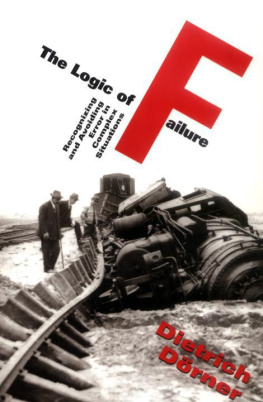
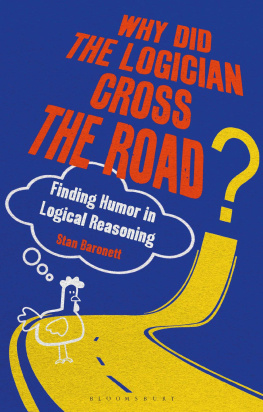


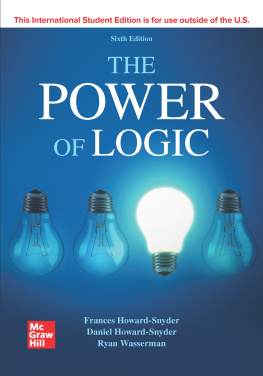
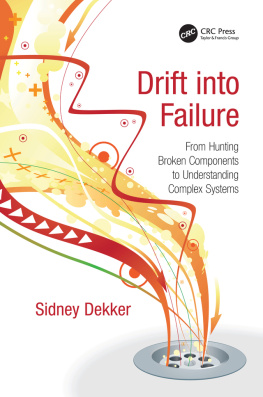

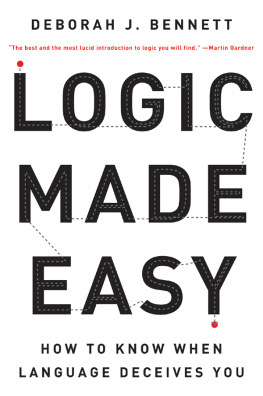

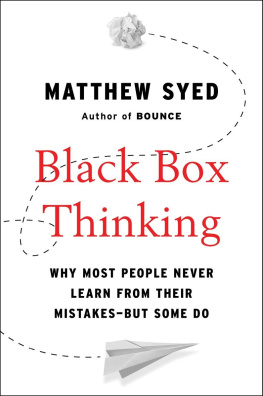
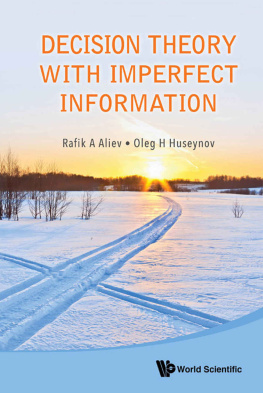







 'e were in high spirits. The physicist laughed as he told his story: "Everybody had agreed on the proposed plan. The mayor had the support of both the citizens and the city council. Because the volume of traffic downtown and the resultant noise and air pollution had become intolerable, the speed limit was lowered to twenty miles per hour and concrete "speed humps" were installed to prevent cars from exceeding it.
'e were in high spirits. The physicist laughed as he told his story: "Everybody had agreed on the proposed plan. The mayor had the support of both the citizens and the city council. Because the volume of traffic downtown and the resultant noise and air pollution had become intolerable, the speed limit was lowered to twenty miles per hour and concrete "speed humps" were installed to prevent cars from exceeding it.